MercoPress. South Atlantic News Agency
Tag: Inflation
-
Tuesday, June 28th 2022 - 09:31 UTC
BCB head says worst part of inflation in Brazil is over
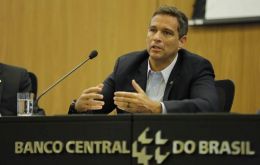
Brazil's Central Bank (BCB) CEO Roberto Campos Neto said Monday that the worst part of inflation in his country was over, after the proper tools to curb the process had been taken.
-
Thursday, June 16th 2022 - 09:11 UTC
US Fed raises rates to curb growing CPI

The United States Federal Reserve Wednesday announced a 0.75% rate hike to between 1.5% and 1.75%, in a move to curb rising consumer prices. It is the first time since 1994 that the Fed has raised the rate this much.
-
Friday, May 13th 2022 - 09:55 UTC
Argentina's inflation for April of 2022 set at 6% – worst YoY data in 30 years
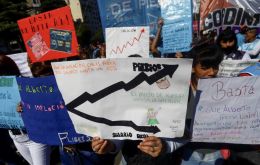
Argentina's National Institute for Statistics and Census (Indec) Thursday announced that inflation for the month of April of 2022 had reached 6% for a total of 58% in the last 12 months, which turned out to be the country's highest figure in 30 years.
-
Thursday, May 12th 2022 - 09:14 UTC
US inflation still strong, but can be expected to ease in second half of the year, analysts agree
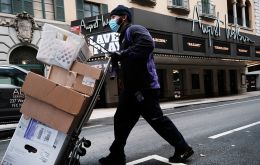
Inflation in the United States seems to have started to taper off, as the rapid cost of goods and services did not change much in April compared to March. Consumer prices rose by 0.3% in April after having risen by 1.2% in March, according to data the Bureau of Labor Statistics released on Wednesday.
-
Tuesday, May 10th 2022 - 10:45 UTC
More inflation in the pipeline for Argentina: estimates of 65,1% for 2022
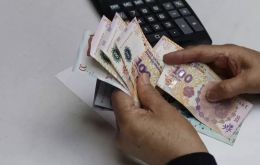
The weekly survey of market expectations, REM, from the Central Bank anticipates a worsening of the inflation situation in Argentina, which once the April index is officially made public this week could represent 65% for the twelve months of 2022.
-
Saturday, May 7th 2022 - 10:45 UTC
Venezuela's inflation for April 2022 stands at 4.4%

Venezuela's Central Bank Friday reported April's inflation had reached 4.4% in April, according to the National Statistics Institute (INE). The new figures were significantly higher than the National Consumer Price Index (INPC) recorded in March but still notoriously better than 24.% from April 2021.
-
Friday, May 6th 2022 - 09:18 UTC
Brazil hikes interest rate to its highest in five years, 12,75%, to fight double digit inflation

As anticipated Brazil's central bank, in a unanimous decision, raised interest rates by 1% to 12,75%, the highest in five years, to contain double digit inflation. However policymakers suggested their tenth straight rate increase would not be the last in what has been one of the world’s most aggressive ongoing rate hike cycles.
-
Friday, May 6th 2022 - 09:09 UTC
Bank of England combats inflation by increasing base rate interest to 1%

The Bank of England on Thursday increased for the fourth consecutive time the base rate interest to 1% in an attempt to contain inflation and despite admitting the prospect of recession. The energy crunch, the Russian war in Ukraine, and lesser household incomes are expected to contribute to weaker growth.
-
Wednesday, May 4th 2022 - 22:07 UTC
Uruguay's inflation stable in April but still above target figures
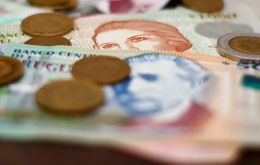
Uruguay's interannual inflation during the month of April of 2022 reached nearly 9.4%, as prices rose below projections thanks to sharp decreases in fruits, vegetables, and meat.
-
Tuesday, April 26th 2022 - 09:45 UTC
Chilean president pledges food subsidies for vulnerable families; inflation the highest in three decades

Chilean president Gabriel Boric said his government was preparing a mechanism to help vulnerable families pay for their basic food basket, which is to be financed with subsidies.
